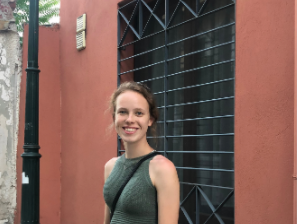Reif: Part 2: 10 reasons we desperately need universal healthcare
November 5, 2021
Health insurance companies are the wardens deciding our fate—what treatment and medications we can receive and when it’s more profitable to let us die. That is, of course, for the people who can afford health insurance in the first place. There are common threads among all ten reasons I propose: greed, profit, exploitation and pain. All symptoms of capitalism. Marginalized communities—LGBTQIA+, low-income and people of color—are disproportionately affected by the inequities of our profit-driven health sector and employer-based insurance system. This week’s three reasons are centered around the people who need to be at the forefront of our organizing and are all too often left behind, silenced or ignored.
4. Healthcare-related costs are the leading cause of personal bankruptcy because of our employer-based insurance and private health system.
As of 2019, 66.5% of all bankruptcies were attributed to medical costs—both the inability to pay for treatment and time out of work. That is over half a million Americans filing for bankruptcy every year. I have yet to learn the words to articulate the pain and burden of these statistics—especially when you remember that each number is a person with loved ones and dreams, weighed down by the profit churning in the pockets of pharma and for-profit health executives. The United States compares to India, Indonesia, Pakistan and Brazil in numbers of medical bankruptcies; meanwhile, in the United Kingdom, only 8.2% of bankruptcies were due to illness or disability. In France in 2008, there were zero bankruptcies due to medical costs, and in Germany, healthcare didn’t crack the top five reasons for filing for personal bankruptcy. While insolvencies may still exist under universal healthcare systems, they would be a mere fraction of their current standing in the U.S.
Before moving on, let’s make one thing clear: a universal healthcare system does not mean healthcare is “free.” It will not make more people quit their jobs in favor of “being lazy” while everyone else is out working. Rather, it will make healthcare a government priority and provision, ensuring it is as accessible as library books and fire rescue. Remember, there was a time when fire departments were private and only those who could afford them were serviced.
5. A universal healthcare plan would operationalize a society where all people not only have a right to quality health, but ability to access it.
Access is the name of the game for universal healthcare. The Affordable Care Act, or “Obamacare”—a plan first devised by Republican congressmen—dramatically increased insurance coverage and thus access to healthcare. It prevented people from losing coverage due to pre-existing conditions, from depression to genetic markers, a miscarriage or severe allergies. However, the Supreme Court prevented Medicaid expansion in every state, which would have improved healthcare access for low-income people, people with disabilities and children. Twelve states, all concentrated in the south or midwest, have failed to expand Medicaid. In states without expansion, more people are uninsured and there is worse diagnosis, treatment and control of diseases from hypertension to cancer and mental health issues. Poor, rural hospitals are especially hurt as they have to absorb the cost of care that patients cannot afford. In North Carolina, 11 rural hospitals closed in the last decade, and 13 more are at risk of closing.
There are at least 30 million uninsured Americans as of early 2020—a number that surely increased with unemployment throughout the pandemic—and over 40 million more are underinsured, meaning their insurance is insufficient for their healthcare needs. People with marginalized identities—Black, Latinx, Indigenous, LGBTQIA+, low-income—are disproportionately likely to be uninsured. As of 2017 and 2018, 28% of American Indian, 22% of Latinx, 15% of LGBTQIA+ and 12% of Black Americans were uninsured. Failure to expand Medicaid and create universal healthcare policies harms the most vulnerable among us.
6. Perinatal mortality has worsened with increasing healthcare privatization. Public health programs are one measure to prioritize and promote safe delivery and health for both the child and pregnant person.
Today’s pregnant people are more likely to die in childbirth than their parents were 25 years ago. Black women experience pregnancy-related mortality at a rate three to four times that of their white counterparts. These maternal and infant mortality disparities exist in Cleveland at some of the worst levels of anywhere in the country, particularly in Fairfax, the neighborhood home to the renowned Cleveland Clinic. In Cleveland, for every one white baby that dies before its first birthday, six Black babies die. This is an injustice attributable to racial inequities and the lifetime stress of racism on the human body.
Politics is tightly intertwined with these mortality rates. Infant and post-neonatal mortality is significantly higher in Republican-controlled state legislators—such as Ohio—than non-Republican ones. Republicans are less likely to understand social determinants of health—environment, gender, race and other identities that affect our health more than genetics—nor do they support social welfare and healthcare programs. Healthcare cannot be a matter of political affiliation, yet it is. People should not be dying at excessive rates due to their sexuality, gender identity or race, yet they are. The only solution is to push for universal healthcare that would see each person as worthy and deserving of high-quality care and treatment.


